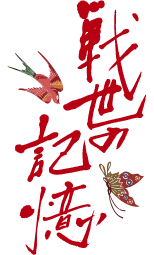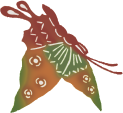
“A student’s experiences in the battles on Iejima Island and north of the main island”
“A student’s experiences in the battles on Iejima Island and north of the main island”
Yoshimitsu Zukeyama, 89 years old
(Place of birth: Uehara, Ohgimi Village, Okinawa Prefecture)
My school life was nothing but military training. We used to sing the song called “Gokyoutai no Uta” (Song of the Boys Corps) during training. We were told “You boys are soon to be soldiers,” and forced to remember the “Imperial Rescript to Soldiers and Sailors.” If we failed to remember it, we were punished. When I was 15 years old, we, a group of 32 - 33 students, went out to build the encampment on Iejima Island and airport. The work was in ten-day shifts and went once a month, then twice a month until the air raid attacked us in October.
(10/10 Air raid)
On the day before the air raid in October, we saw many reconnaissance planes called Grumman (American airplane) flying all over the sky when we arrived at the village for the shift after our work on Iejima Island. The 10/10 air raid was carried out one day after we returned from Iejima Island.
(US Disembarkation)
When the US Armed Forces landed, I was on the top of the Yomitan Mountain located north of Zakimi Gusuku Castle in Yomitan Village watching the amphibious tanks landing on the port of Toguchi through the binoculars belonging to the company commander. Because there was no firing from the Okinawan side, I asked the company commander, “Do you think the Japanese corps stationed in Okinawa can win? They are not firing at all.” Then the commander replied by simply saying, “Well, I hope so.”
Since I was a chosen member of the shock troops, I moved to the encampment in Yaka with necessary weapons on April 2, as soon as the US Armed Forces landed. The troops consisted of 60 soldiers. Three soldiers worked as a team and one bomb was given to each team. In total, 60 soldiers had 20 bombs.
We stayed in an evacuation-cabin-like building. Since we had no encampment or shelter, we would be exposed to the bombs falling like a rain shower once we were bombarded.
We came across the American soldiers here and there. They looked like devils fallen from the sky. Speaking about my impression of the Japanese Army, they always put an importance on the rituals such as “Smoking the cigarette given by the Emperor,” or “Farewell cup of water” (last drink of water before heading into battle) When it comes to training, I always was beaten by senior officers. It was so harsh because if we talked about our families, we were punished. We were not allowed to talk about our families at all.
Then, we retreated from Onna Dake Mountain on June 1 and arrived at the village on July 19. It took us 50 days, passing through valleys and over mountains, straying into the mountain trails for an uncountable amount of times, to get to the village. Having no food and no water was the hardest part of the whole moving. We found some streams, but we were not allowed to drink any water from the streams. We were told, “The streams are poisoned with cyanide. Don’t drink any water or you will die.” In addition, we suffered from lice. It was a tough job to fight against the lice. Malaria, dysentery and nutritional deficiency also gave us a hard time and killed our fellow soldiers one after another.
Our commanding officer did not say, “The war is over.” Instead, he said, “We are expecting the Japanese Army from the main islands of Japan to come and land on our island. When they come, we will gather again and start guerrilla battles. Until then, you go home and bring some food, then deliver the food to the officers from the Nakano School (Military Army Nakano School).” We never heard anyone say, “Japan lost the war.” Some people around us said, “Japan will win,” and some said, “We are losing.”
On July 19, 1945, we all swam across the port of Shioya. As I was not able to swim, I told myself “Do it or die,” and jumped into the sea with the mast of a dugout canoe tied to my body. I was tossed and turned by the sea and was not sure if I would survive.
(Looking back at the war)
War is truly hell on earth. I experienced the war and I still cannot believe that those cruel scenes that I saw during the war were something of this world. Article 9 in the Pacifist Constitution reads “We do not have and retain the Navy, Army and Air Force.” I believe if the article were shared by the people in the world, there would be no war.
Yoshimitsu Zukeyama, 89 years old
(Place of birth: Uehara, Ohgimi Village, Okinawa Prefecture)
My school life was nothing but military training. We used to sing the song called “Gokyoutai no Uta” (Song of the Boys Corps) during training. We were told “You boys are soon to be soldiers,” and forced to remember the “Imperial Rescript to Soldiers and Sailors.” If we failed to remember it, we were punished. When I was 15 years old, we, a group of 32 - 33 students, went out to build the encampment on Iejima Island and airport. The work was in ten-day shifts and went once a month, then twice a month until the air raid attacked us in October.
(10/10 Air raid)
On the day before the air raid in October, we saw many reconnaissance planes called Grumman (American airplane) flying all over the sky when we arrived at the village for the shift after our work on Iejima Island. The 10/10 air raid was carried out one day after we returned from Iejima Island.
(US Disembarkation)
When the US Armed Forces landed, I was on the top of the Yomitan Mountain located north of Zakimi Gusuku Castle in Yomitan Village watching the amphibious tanks landing on the port of Toguchi through the binoculars belonging to the company commander. Because there was no firing from the Okinawan side, I asked the company commander, “Do you think the Japanese corps stationed in Okinawa can win? They are not firing at all.” Then the commander replied by simply saying, “Well, I hope so.”
Since I was a chosen member of the shock troops, I moved to the encampment in Yaka with necessary weapons on April 2, as soon as the US Armed Forces landed. The troops consisted of 60 soldiers. Three soldiers worked as a team and one bomb was given to each team. In total, 60 soldiers had 20 bombs.
We stayed in an evacuation-cabin-like building. Since we had no encampment or shelter, we would be exposed to the bombs falling like a rain shower once we were bombarded.
We came across the American soldiers here and there. They looked like devils fallen from the sky. Speaking about my impression of the Japanese Army, they always put an importance on the rituals such as “Smoking the cigarette given by the Emperor,” or “Farewell cup of water” (last drink of water before heading into battle) When it comes to training, I always was beaten by senior officers. It was so harsh because if we talked about our families, we were punished. We were not allowed to talk about our families at all.
Then, we retreated from Onna Dake Mountain on June 1 and arrived at the village on July 19. It took us 50 days, passing through valleys and over mountains, straying into the mountain trails for an uncountable amount of times, to get to the village. Having no food and no water was the hardest part of the whole moving. We found some streams, but we were not allowed to drink any water from the streams. We were told, “The streams are poisoned with cyanide. Don’t drink any water or you will die.” In addition, we suffered from lice. It was a tough job to fight against the lice. Malaria, dysentery and nutritional deficiency also gave us a hard time and killed our fellow soldiers one after another.
Our commanding officer did not say, “The war is over.” Instead, he said, “We are expecting the Japanese Army from the main islands of Japan to come and land on our island. When they come, we will gather again and start guerrilla battles. Until then, you go home and bring some food, then deliver the food to the officers from the Nakano School (Military Army Nakano School).” We never heard anyone say, “Japan lost the war.” Some people around us said, “Japan will win,” and some said, “We are losing.”
On July 19, 1945, we all swam across the port of Shioya. As I was not able to swim, I told myself “Do it or die,” and jumped into the sea with the mast of a dugout canoe tied to my body. I was tossed and turned by the sea and was not sure if I would survive.
(Looking back at the war)
War is truly hell on earth. I experienced the war and I still cannot believe that those cruel scenes that I saw during the war were something of this world. Article 9 in the Pacifist Constitution reads “We do not have and retain the Navy, Army and Air Force.” I believe if the article were shared by the people in the world, there would be no war.


